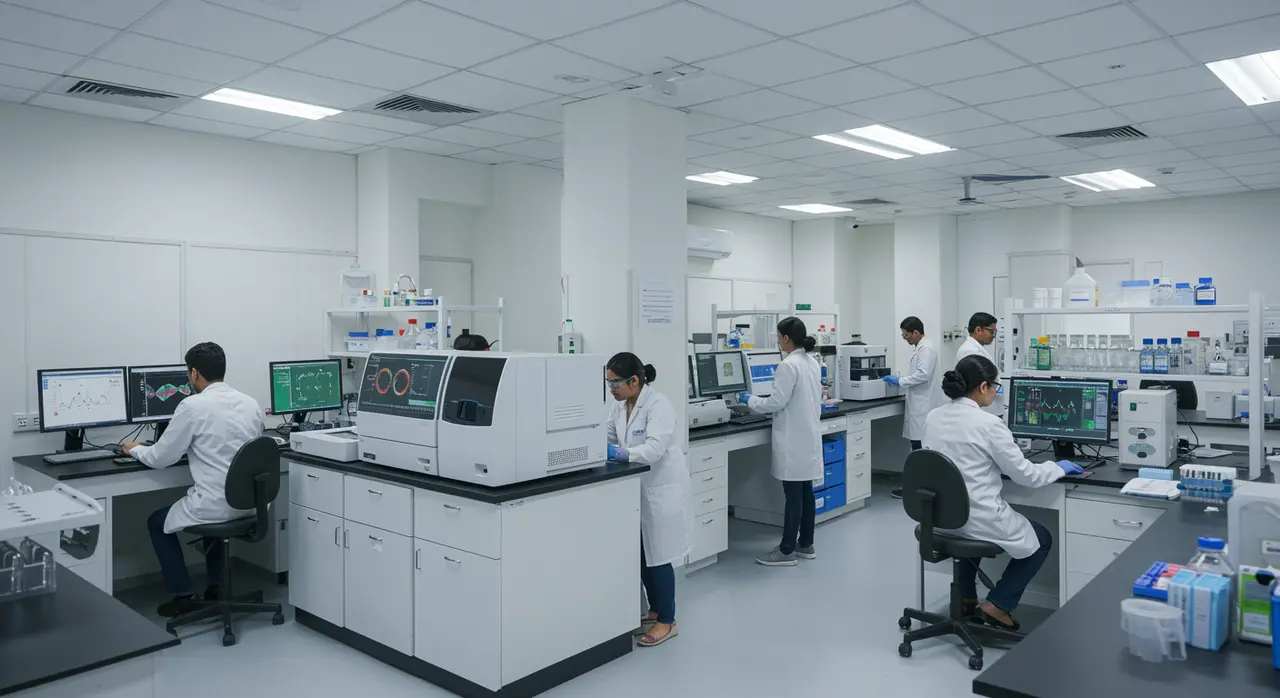Genetic Testing Revolutionizing Preventive Healthcare in India Amid Rising Genetic Disorder Prevalence
59 views
Genetic Testing in India: A Quiet Revolution in Preventive Healthcare
In a nation where nearly 25 million children are born every year, the integration of genetic testing into healthcare is emerging as a transformative force, reshaping the landscape of pregnancy care and preventive medicine. By offering families the ability to uncover hidden genetic risks and act on them before they manifest into full-blown health crises, this technology is not only addressing the staggering burden of inherited disorders but also paving the way for a healthier, more informed society.
The story begins with the remarkable versatility of genetic testing, which spans the entire continuum of life. Carrier screening, often conducted before conception, allows couples to assess their risk of passing on serious genetic conditions such as thalassemia, cystic fibrosis, or sickle cell anemia to their offspring. For those identified as carriers, the options are both diverse and empowering—ranging from in-vitro fertilization (IVF) with preimplantation genetic testing (PGT) to the use of donor gametes. Meanwhile, non-invasive prenatal testing (NIPT) during pregnancy has become a beacon of reassurance for expectant parents, offering early detection of chromosomal abnormalities such as Down syndrome with a simple blood draw.

Perhaps most crucially, newborn screening programs, which test for a variety of metabolic and genetic conditions like phenylketonuria (PKU) and congenital hypothyroidism, have proven to be lifesaving. In countries with robust screening protocols, infant mortality rates have seen a dramatic decline, and affected children have been able to receive timely medical interventions that significantly improve their quality of life. For India, where neonatal and infant mortality remain pressing concerns, the adoption of such programs could represent a watershed moment in public health.
But the impact of genetic testing extends far beyond the cradle. Adults, too, are increasingly turning to this technology to uncover their predispositions to conditions like cardiovascular diseases, inherited cancers, and neurological syndromes. Armed with this knowledge, individuals can take preventive measures, whether through lifestyle modifications, regular surveillance, or even prophylactic medical interventions. For instance, identifying a genetic mutation associated with breast or ovarian cancer can prompt early screening or preventive surgery, potentially saving lives.
Amidst this technological leap, genetic counselors have emerged as indispensable guides, helping individuals and families navigate the emotional and ethical complexities of genetic testing. These professionals not only interpret test results but also provide the education and emotional support necessary for making informed healthcare decisions. In a country as diverse and populous as India, where cultural and societal factors often influence medical choices, their role cannot be overstated.
India’s embrace of genetic testing is particularly timely, given the rising prevalence of genetic disorders in its population. Estimates suggest that over 70 million Indians are carriers of thalassemia, while sickle cell anemia continues to pose a significant health challenge in tribal and rural areas. Additionally, the country’s high birth rate amplifies the impact of inherited conditions, making preventive strategies all the more urgent.
Yet, challenges remain. While awareness around genetic testing is growing, its accessibility is still limited by factors such as cost, infrastructure, and healthcare disparities between urban and rural areas. Moreover, the ethical implications of genetic testing—ranging from privacy concerns to the potential for misuse—demand careful regulation and oversight.
Despite these hurdles, the potential benefits of genetic testing are too significant to ignore. By identifying risks early and enabling proactive health management, this technology has the power to not only reduce the burden of inherited diseases but also alleviate the emotional and financial strain on affected families. For India, where healthcare resources are often stretched thin, the preventive focus of genetic testing could prove to be a game-changer, allowing for more efficient allocation of medical resources.
The broader implications of genetic testing also extend to public health policy. With the right investments in infrastructure and education, India could establish nationwide screening programs that mirror those in developed countries, thereby creating a more equitable healthcare system. Additionally, integrating genetic testing into existing maternal and child health initiatives could amplify their impact, ensuring that no child is left behind due to preventable genetic conditions.
As genetic testing becomes more accessible and its benefits more widely understood, it has the potential to redefine healthcare not just in India but across the globe. It is a poignant reminder that the future of medicine lies not in treating diseases after they occur but in preventing them from occurring in the first place. In this sense, genetic testing is not merely a tool of science but a harbinger of a new era in human health—one where knowledge truly becomes power, and where the promise of healthier futures is no longer a distant dream but a tangible reality.